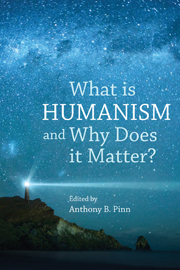Preface
Summary
In significant ways Europe has provided a model of public humanism; many people in other areas of the world mark the humanism of places like the Netherlands as a highpoint of possibility for a rational and logic-driven world. This is not to say that all nations within Europe have the same relationship toward humanism; however, it appears that humanism is more integrated into the fabric of public and private life in Europe than it is in other locations such as the United States, if for no other reason than a somewhat different perception of and reception of secularization. My point in making these comments, however, is not to debate the secular nature of European societies, but instead simply to point to the manner in which the simple perception of a more humanism-friendly environment in Europe has motivated certain developments elsewhere in the world. For instance, things are changing in the United States, despite its public discourse saturated with religious vocabulary and grammar. Within the context of the United States, a push for humanist sensibilities within the public arena of debate over political policy, socioeconomic arrangements, and cultural worldviews is gaining energy. In fact, current political and cultural developments have resulted in new opportunities for and altered attitudes towards humanists and humanism-based enterprises. A clear symbol of this shift is captured by the inclusion of non-theistic orientations in President Obama's inaugural speech.
- Type
- Chapter
- Information
- What is Humanism, and Why Does it Matter? , pp. vii - xiiPublisher: Acumen PublishingPrint publication year: 2013



